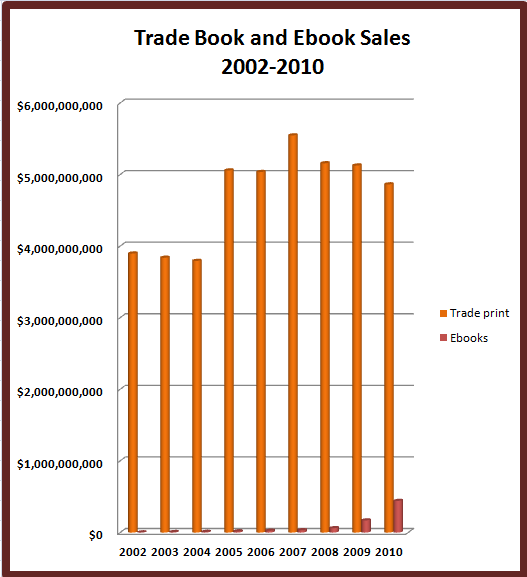A potpourri of links, preceded by a few questions.
First of all, I'm teaching LIS 712 (The Public Library) at the UW-Madison School of Library and Information Studies. As you might suspect, there's a direct link between my revision of the course materials and this blog.
A semester project requires that each student, either individually or part of a small group, "adopt" a public library in order to gain a fuller understanding of the various topic covered in the syllabus. One of the elements of the project is to interview the director and other staff.
Which brings me to a series of questions that I'd like to ask right now. (If you choose to answer, you may respond to me directly at bennel62@gmail.com if you wish.
1. Describe 2 or 3 aspects of your library operations in which technology (in general) has made the biggest impact.
2. In what ways has digital media changed your library's approach to collection development?
3. Based on patron feedback, what's the prognosis for the printed book in your community?
Ebooks vs. print books, part 1.
The poster (see screenshot below) is from 2010, which means most of the numbers are out of date, but I share it now because I like the lead-off question, especially as we continue to work our way through the latest hype cycle. I also like the statement that I've bracketed with red arrows.
On the other hand, I have to wonder about the "2009 publishers sales totals". Did they really use the Association of American Publishers report?
Note: "Trade print" is defined as books intended for the general consumer market. This category does not include textbooks, for example.
Ebooks vs. print books, part 2.
E-readers or print books: Which are greener? (San Francisco Chronicle, 12/4/2011)
Excerpt:
Verdict: While pinpointing the exact number of books one must read to rationalize the switch to an e-reader is tricky, it's safe to say that someone who reads fewer than 10 books each year is better off with physical books, printed on paper with recycled content, if possible.
But if you are an avid reader, says Hoover, "consider purchasing a device that will let you do other things, like Web surfing or e-mailing, to bring down your overall carbon footprint."
And of course, because it represents one of the most proven models of "reuse" around, the greenest option of all is still your local public library. [Emphasis added.]
Ebooks vs. print books, part 3.
Ebooks vs. Print books. Latest Amazon ereaders, new exclusive content keep momentum going for ebooks. (Network World, 11/2/2011)
Excerpt: So as ereaders become more popular, users will naturally look for alternative, cheaper ways to fill them with content. One sign of their popularity will be libraries, which monitor their users closely to make better use of tight budgets. Already 67.2% of libraries offer some access to ebooks, according to a report issued by the American Library Association in June. Local media reports mirror this trend - an October article in the Boston Globe said ebook borrowing rates are climbing quickly at area libraries, although print titles are still far more popular.
Ebooks vs. print books, part 4.
Clive Thompson on the Future of Printed Books. (Wired, 11/29/2011)
Excerpt: Will the ebook kill off the print book?
Every time I hear that question, I think about the “paperless office.” Back in the ’80s, the rise of word processors and e-mail convinced a lot of people that paper would vanish. Why print anything when you could simply squirt documents around electronically?
We all know how that turned out. Paper use exploded; indeed, firms that adopted e-mail used 40 percent more paper.
Ebooks vs. print books, part 5. (Link to entire graphic)
I'm an omnivore when it comes to reading: Print (books, magazines, and newspapers), audio (compacts discs and MP3), online (via desktop, laptop, iPhone, iPad).
Related posts:
Go directly to Amazon, do not pass library. (11/3/2011)
Ebooks in U.S. public libraries. (10/22/2011)
How ebook buyers discover books. (9/27/2011)
Cookbooks make the transition to digital publishing. (9/27/2011)
Redefining what an ebook is and who gets to publish it. (9/19/2011)
The L.A.Times on ebooks: An Amazon tablet, push into interactivity. (9/16/2011)
The Economist: "Great digital expectations". (9/16/2011)
Lev Grossman presents a short history of the reading device.. (9/6/2011)
Speaking of gadgets, here's the latest iteration of ebooks. (8/25/2011)
Sounds like another digital divide in the making. (7/30/2011)
Libraries and ebooks: Any book, not any time soon. (6/1/2011)
On the distinction between the book reader and the book owner. (5/10/2011)
Demand for ebooks grows exponentially in Wisconsin. (5/2/2011)
Struggling to find an ebook common agenda between libraries and publishers. (4/5/2011)
Ebooks and libraries: "The challenges just keep piling up". (3/28/2011)
Publishers Weekly tracks ebook sales. (3/18/2011)
Word is getting out: Ebooks @ your library. (3/18/2011)
Ebooks continue to gain market share. (3/17/2011)
Publishers look to bottom line in formulating ebook policies for libraries. (3/15/2011)
News stories on HarperCollins ebook decision go mainstream. (3/5/2011)
9 years of book sales: trade and ebook. (2/17/2011)
Will ebook readers be wooed by Barbara Cartland? (2/12/2011)
The impact of ebooks on libraries. (2/11/2011)
OverDrive news release: Library eBook circs up 200% in '10. (1/10/2011)
Mashable: 5 ebook trends that will change the future of publishing. (12/29/2010)
Christmas 2010 the tipping point for ebooks? (12/24/2010)
Ereader as brown paper bag. (12/9/2010)
The ebook reader compatibility surprise. (12/3/2010)
Ereader ownership: Survey says.... (11/30/2010)
David Carnoy asks, "Does the Kindle pay for itself?" (11/29/2010)
Need to repair that ebook reader? (11/19/2010)
Who uses an ereader: Survey says.... (9/22/2010)
Book industry wrestles with print vs. pixels. (9/2/2010)
Coming soon to a screen near you: Ads in ebooks. (8/20/2010)
Ebooks now comprise 8.5% of book sales. (8/12/2010)
Genre paperback publishers drops print. (8/6/2010)
Ebooks and libraries. (5/4/2010)
Ebooks eliminate a free form of adversiting: the book jacket. (3/31/2010)
Ebooks: another round of false promises? (3/19/2010)
The skinny on ebooks. (3/8/2010)
Hardcover vs. ebook: Breaking down the costs. (3/1/2010)




No comments:
Post a Comment